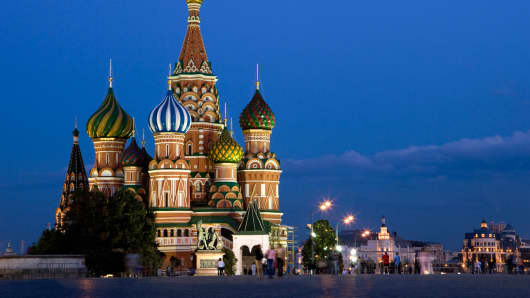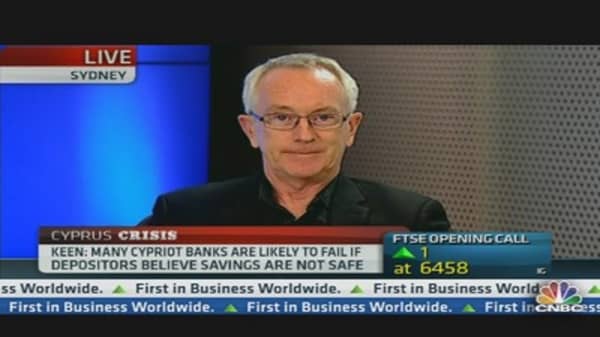Germany might be telling the world not to blame it for Cyprus' bailout plan, but one analyst told CNBC that Russia could avenge the loss of billions of dollars it has invested and deposited on the island by cutting Germany's energy supply.
As the Cypriot parliament prepares to vote on a controversial and unprecedented proposal to levy a tax on bank accounts held on the island, the deal has been described as a covert move by Germany and its euro zone partners to tackle what they perceive as Russian money laundering in Cyprus.
Twenty percent of total deposits of the Cypriot banking system are held by Russians and many Russian businesses are registered in Cyprus, making any plan to levy a 15.6 percent tax on deposits over 100,000 a moot point for Russia. The country has also given Cyprus a $3.3 billion loan that Cyprus wishes to extend.
(Read More: 'Unfair, Dangerous' Cyprus Deal Whacks Rich Russians)
Russia's leaders have already condemned the European bank levy proposal, with President Vladimir Putin calling it "unfair, unprofessional and dangerous" on Monday. On Tuesday, Russian Prime Minister Dimitry Medvedev added to the growing Russian frustration over the move. "Quite strange and controversial decisions [are] being made by some EU member states. I mean Cyprus. Frankly speaking, this looks like the confiscation of other people's money," Medvedev said on Monday.
(Read More: Will Cyprus Derail Draghi's Good Work?)
Steve Keen, professor of Economics & Finance at the University of Western Sydney, told CNBC that Russia could retaliate against the perceived proxy attack on its citizens, and their money.
"If you try to target the Russians, and there's President Putin acting under the image of the 'strong man' of Russia, why would he not then decide to shut down gas supplies to Germany until that was righted?
"If you're going to attack money laundering then attack it directly, don't make Cypriot peasants and small businessmen collateral in your campaign against Russian oligarchs. Declare the campaign rather than doing it under the carpet like this too," he added.





